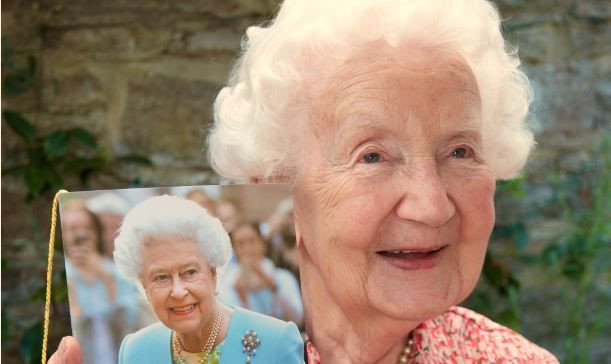Centenarians Say Positivity Key To Longevity, Followed By Diet And Exercise

The results of UnitedHealthcare’s (UHC) annual 100@100 survey are in — and the future looks good for positive thinkers.
Each year, UHC polls 100 centenarians on their thoughts and opinions regarding health, family, their likes and dislikes, and so on. Since this year the survey turns 10, UHC also polled 100 10-year-olds in order to draw comparisons between younger and older Americans. The results showed 52 percent of centenarians felt younger than their actual age; 60 percent didn’t feel old at all. If they did feel old, respondents admitted not feeling so (on average) until age 87. To the younger respondents, however, “people start to get old at age 46.”
Older Americans, too, were more optimistic. Nearly two-thirds of centenarians considered themselves very positive people, while only 44 percent of 10-year-olds considered themselves to be positive. Of course, centenarians added “it gets easier to maintain a positive attitude with age.” In which case, optimism is believed to be a marker of longevity.
Both younger and older Americans agreed close connections with family help fuel a positive attitude, including connections with long distance family and friends: 83 percent of centenarians and 84 percent of 10-year-olds said “they speak with extended family on a daily or weekly basis.” This isn’t the first study, though, that has found strong social ties are healthy for Americans. Prior studies have shown social connection leads to greater happiness and connection to the greater good.
After positive thinking, centenarians chalk their age up to eating healthy, regular exercise, and keeping busy. The Huffington Post cited respondents gave a range of answers regarding what keeps them active and busy; some go for a walk or hike, while others meditate and simply spend time with loved ones.
Meanwhile, a separate study published in the Scandinavian Cardiovascular Journal followed 855 men born in 1913 in order to determine what lifestyle choices promote longevity. Twenty-seven percent of men lived to age 80; 13 percent lived to 90; and 1.1 percent (10 men) lived to 100. Of the men who lived to 100, researchers found they avoided smoking, maintained healthy cholesterol levels, limited their coffee intake to four cups per day, as well as enjoyed "robust working capacity." This just means these men regularly worked out, namely on the bicycle.
“Year after year, we hear from centenarians that there is a correlation between healthy aging and a healthy mindset,” said Rhonda Randall, chief medical officer of UHC's Retiree Solutions. “It’s a good reminder for us all to take care of our mental, emotional, and social health — in addition to our physical health.”



























